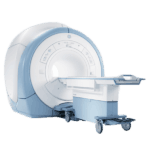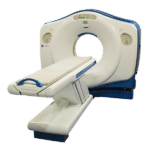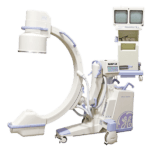Physicians rely on diagnostic imaging to diagnose and treat IBD or other issues regarding the gastrointestinal system

A common and sometimes complex ailment is Inflammatory Bowel Disease. Often times, physicians rely on diagnostic imaging to diagnose and treat IBD or other issues regarding the gastrointestinal system. Diagnostic imaging is not used for the purpose of a stomachache but when there’s something more serious, intervention is necessary. So is there some sort of issue? Radiation is a concern for a few reasons.
The radiation, as with most conditions, is a concern for patients because it can sometimes show immediate or long term effects as far as patients are concerned. According to a study conducted on data covering a ten-year time span, and nearly 2600 patient results, higher levels of radiation are, apparently, linked to IBD. Radiation may not be a favorable method but it is necessary for diagnostic imaging and treatment of complex conditions.
The study’s percentages revealed that the incidence of IBD only occurred on patients that underwent diagnostic imaging with higher levels of radiation. It’s also fair to note that diagnostic imaging was only conducted in nearly 60% of the patients. The methods were extremely meticulous with regard to detail, a breakdown explained: “All patients who attended gastroenterology clinics at a tertiary center with special interests in IBD and functional GI disorders from January 1, 1999–January 1, 2009 were identified from the center’s prospectively maintained electronic patient database. Patients with at least 4 weeks of follow-up were included. Clinical and demographic data were obtained by retrospective chart review.” The patients that were looked at were obviously not first timers or people requested for a study.
There was a specific way to classify the studies according to modality. Understandably there were different imaging studies from MRIs to CT Scans, and so on. Radiation doses were variable nature. This is the kind of study that helps Physicians look into the use of radiation dosage. The intent is to make imaging as effective as possible with as little side effect as possible to the patient. The conclusions specified that “there is a clear need for evidence-based guidelines on the use of diagnostic imaging in patients with organic and functional GI disorders.”
Get Started
Request Pricing Today!
We’re here to help! Simply fill out the form to tell us a bit about your project. We’ll contact you to set up a conversation so we can discuss how we can best meet your needs. Thank you for considering us!
Great support & services
Save time and energy
Peace of mind
Risk reduction
The main focus now is to use diagnostic imaging responsibly and correctly. One thing worth noting is that while these types of studies are accurate and thorough, they do cover a specific age and gender profile most of the times. Radiation’s effects on the individual are often times based on the individual’s own genetic profile. One person may likely be more susceptible to the effects of radiation than another.
If you have any questions with regards to diagnostic imaging procedures, or equipment such as MRIs, CT Scanners, or X-Rays, please feel free to give us a call. We look forward to hearing from you and answering any and all questions you may have.
Posted by:
Bobby Serros
President/CEO
407.438.7847
bobbys@amberusa.com
References:



